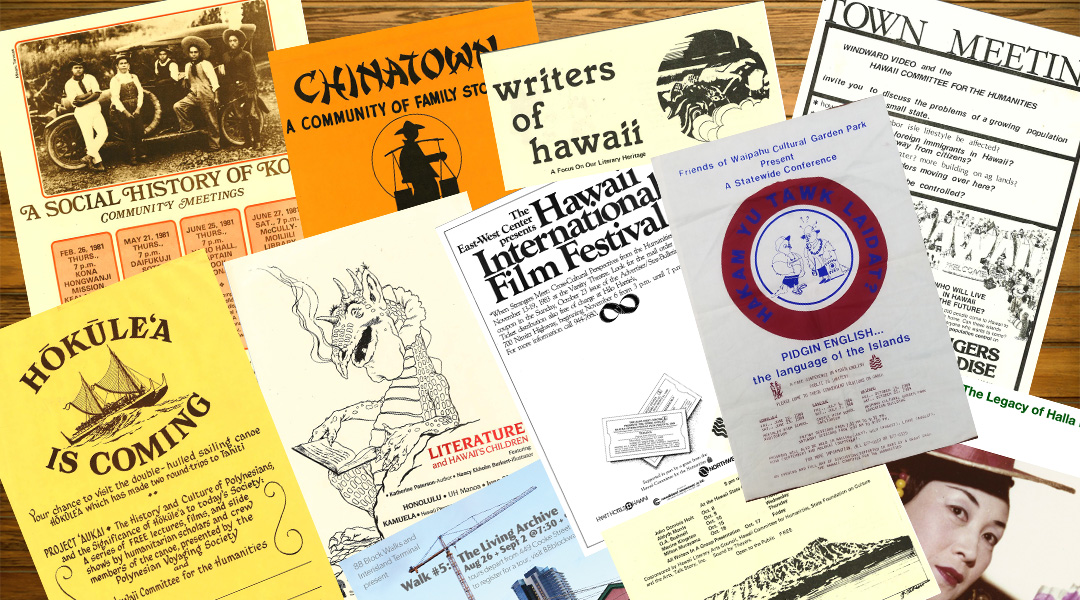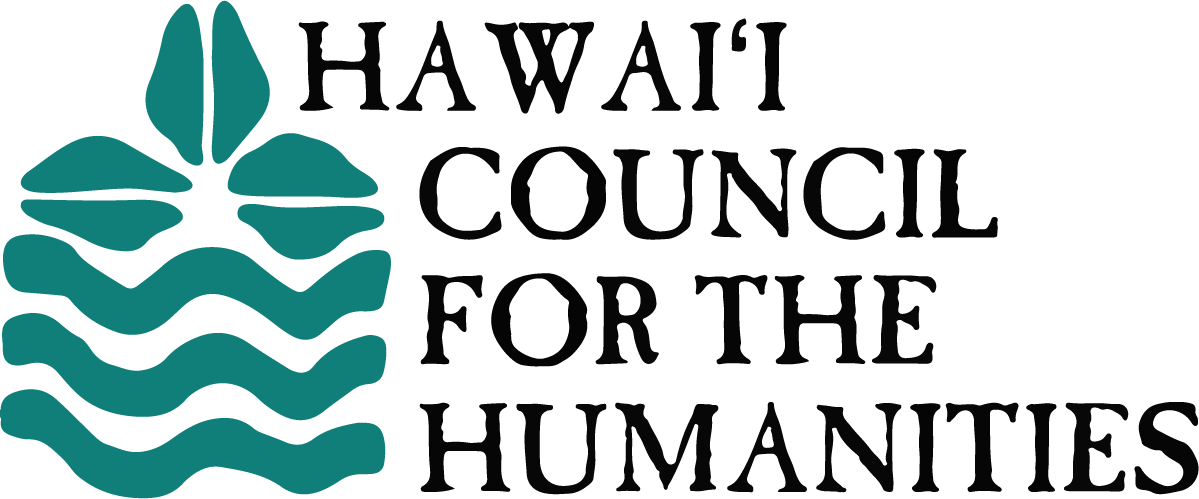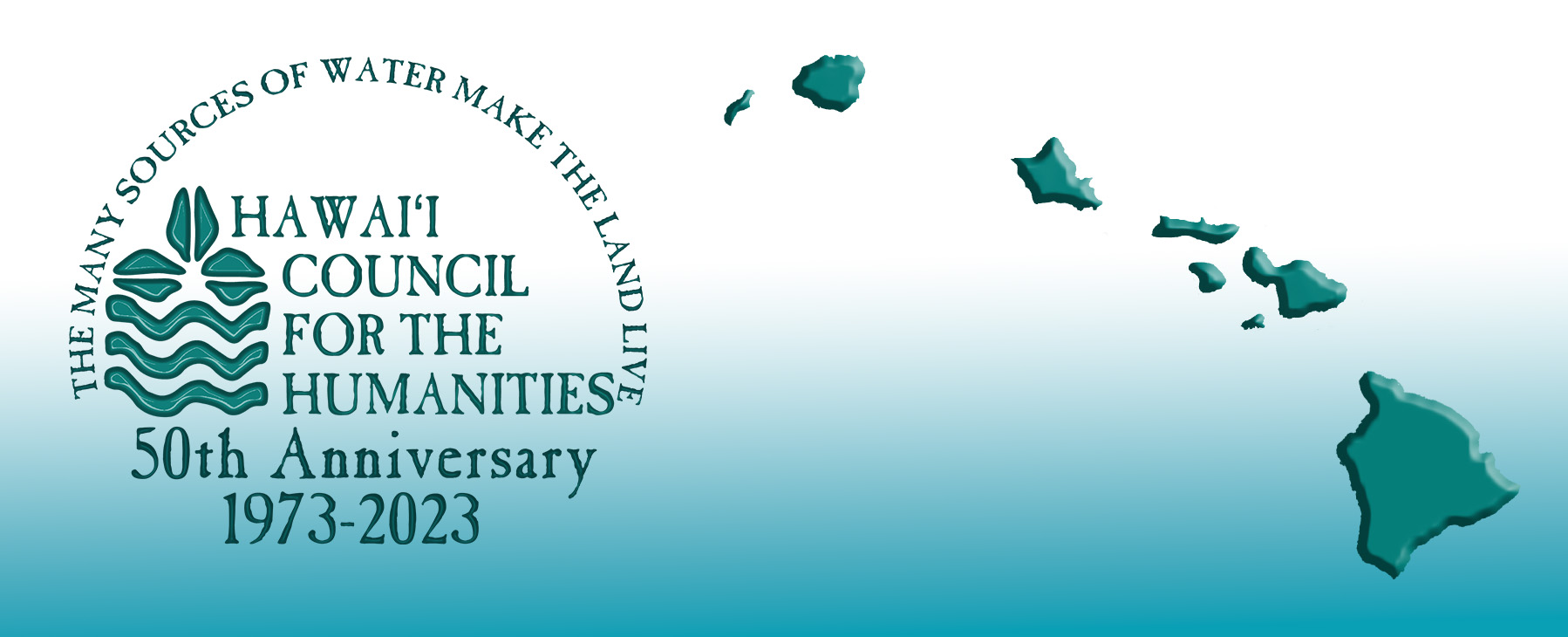What Are the Humanities & What Does Hawaiʻi Council for the Humanities Do?
Hawaiʻi Council for the Humanities supports work that nourishes and replenishes the people of Hawaiʻi. Who we are and what we do is framed by the humanities, which encompasses areas of study and exploration that help us better understand the world we live in, including who we were, who we are, and who we want to be. In educational academic terms, it’s history, philosophy, literature, religion, etc. It’s everything that defines and shapes us as a culture, community, and people.

What Are the Humanities in Hawaiʻi?
In Hawaiʻi, we are held by many cultures. Kanaka Maoli culture and people are a foundational source of our beloved home and integral to what makes this land live. In the last two hundred years, our islands have also become home to Chinese, Portuguese, Japanese, Filipino, Okinawan, Korean, American, Puerto Rican, Vietnamese, Sāmoan, CHamoru, Tongan, Marshallese, Chuukese, Pohnpeian, and Palauan peoples, histories, and cultures . . . to name but a few.
We are part of the Pacific, the vast ocean expanse that stretches between the Americas and Asia and connects us to a network of islands holding cultures thousands of years deep. Humanities scholar, Epeli Hauʻofa asked us to consider the Pacific as a “sea of islands,” so think of this: we live in the largest deepest body in the world. Our cultures, our people, and our stories echo the depth and the richness of the Oceanic imagination.
The humanities are the stories of all of us. In Hawaiʻi our kuleana as Hawaiʻi Council for the Humanities is to support the bountiful connections that exist and foster the possibility of new connections between all kinds of peoples, cultures, and perspectives.
Now is the Time for Stories
The humanities increase empathy and understanding, transform our lives, and strengthen community connections, resiliency, and leadership. During the pandemic, our grantees and partners created virtual curriculum for educators, distributed food to elders and those who had fallen ill, translated COVID information across cultural barriers, offered teen enrichment programs and cultural events to maintain positive connections across isolated families. As we emerge from the pandemic, the humanities can help our communities increase empathy and understanding across differences, and reconnect to our values and each other.
In 2022, as we emerge from the pandemic and its great challenges and lessons, we are also beginning our 50th year of service—an exciting moment of reflection and growth. From Fall 2022 to Fall 2023, we plan a year of gatherings across the state: sharing needs and future visions of diverse communities, creating long lasting connections in the sector, sharing strategies for community strength and healing. Now is the Time for Stories. We will be diving in to stories about intergenerational connection, cultural identity and cultural healing, social justice and understanding across difference, storytelling (history, literature, etc.), spiritual sustenance, civic engagement and civic responsibility, and other deep topics that help us explore what makes us human, how we relate to each other, and how we strengthen communities.
Join us in this exciting 50th year, weaving together the past and the future.

